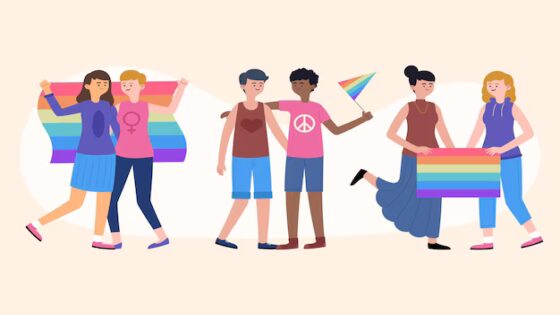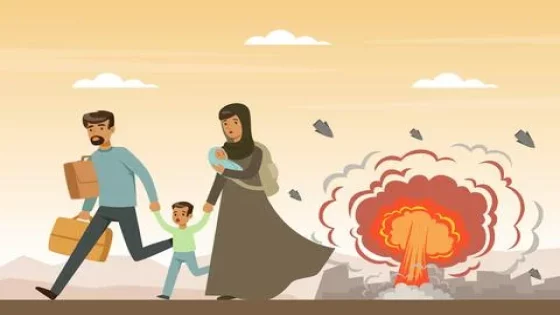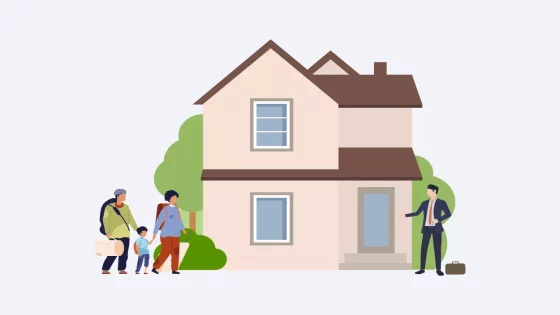Introduction
Seeking asylum in Greece as an LGBT individual comes with unique challenges. Many applicants flee their home countries due to persecution based on their sexual orientation or gender identity. The asylum interview is a crucial step where applicants must provide credible and consistent testimonies to justify their need for protection.
This guide provides detailed information on common asylum interview questions for LGBT applicants, real-life examples, best answers, and essential tips for a successful application.
1. Understanding the LGBT Asylum Interview Process
What to Expect
- The interview is conducted by a caseworker from the Greek Asylum Service.
- An interpreter will be provided if necessary.
- The interview is confidential; your information will not be shared with authorities from your home country.
- The interviewer will ask about your identity, experiences of persecution, and reasons why you fear returning to your home country.
- You can request an LGBT-sensitive interviewer or legal support from specialized NGOs.
Key Documents to Bring
- Identification documents (passport, national ID, or birth certificate)
- Supporting evidence (police reports, medical reports, letters from LGBT organizations, photos, testimonies, etc.)
2. Common Questions and Suggested Answers
A. Personal Background and Sexual Orientation/Gender Identity
- Q: How do you identify in terms of sexual orientation or gender identity?
- A: « I identify as [gay/lesbian/bisexual/transgender/non-binary]. I have known this about myself since [age]. »
- Q: Can you describe your coming-out process?
- A: « I first realized I was [LGBT] at the age of [age]. It was difficult to accept because of the stigma in my society. I first came out to [friend/family member] and their reaction was [supportive/rejecting]. »
- Q: Have you been involved in any LGBT-related activities?
- A: « Yes, I participated in secret LGBT meetings, online advocacy, and I was part of [LGBT organization/group] in my home country. »
B. Experiences of Persecution
- Q: Why do you fear returning to your home country?
- A: « In my country, LGBT individuals face discrimination, physical violence, and even criminal charges. »
- Q: Can you describe an incident where you faced discrimination or violence?
- Real-Life Example: « In [Year], I was attacked by a group of men because I was suspected of being gay. They beat me and left me unconscious. The police refused to help, saying, ‘This is what happens to people like you.’ »
- Q: Did you report the incident to the authorities?
- A: « I did not because I knew the authorities would not protect me. Instead, they often harass LGBT people. »
- Q: Are there laws in your country that criminalize LGBT people?
- A: « Yes, in my country, same-sex relationships are illegal, and people have been imprisoned or even killed for being LGBT. »
C. Journey to Greece
- Q: How did you travel to Greece?
- A: « I fled my home country and traveled through [countries] before reaching Greece. »
- Q: Did you face any threats on your journey?
- A: « Yes, I was harassed by smugglers who realized I was LGBT. I also faced abuse in detention centers. »
D. Life in Greece and Future Plans
- Q: How have you been living in Greece?
- A: « I have been staying in an LGBT-friendly shelter and receiving support from NGOs. »
- Q: What do you plan to do if you are granted asylum?
- A: « I want to build a new life, work, integrate into Greek society, and contribute positively. »
3. Essential Tips for a Successful LGBT Asylum Interview
A. Be Honest and Consistent
- Do not fabricate your story, as inconsistencies can harm your case.
- If you do not remember a detail, say so instead of guessing.
B. Stay Calm and Composed
- LGBT asylum seekers often face difficult or invasive questions. Try to remain calm.
- If a question makes you uncomfortable, you can ask for a break or clarification.
C. Provide Evidence and Witnesses
- Letters of support from LGBT organizations, testimonies from friends, or social media posts showing your LGBT identity can strengthen your case.
D. Seek Legal and Psychological Support
- NGOs such as HIAS Greece, Colour Youth, and the Greek Council for Refugees provide specialized support for LGBT asylum seekers.
4. LGBT Support Organizations in Greece
- HIAS Greece – https://www.hias.org/where/greece
- Colour Youth – LGBTQ Community of Athens – https://www.colouryouth.gr
- Greek Council for Refugees (GCR) – https://www.gcr.gr
- SolidarityNow – https://www.solidaritynow.org
- UNHCR Greece – https://help.unhcr.org/greece
Conclusion
LGBT asylum seekers in Greece face unique challenges, but with the right preparation, they can present a strong case. By understanding the interview questions, preparing answers, and seeking legal support, they can increase their chances of being granted asylum and starting a new life in a safe environment.
Sources:
- UNHCR Greece
- Greek Asylum Service
- Humanitarian organizations
Copyright protected for LEBPI.COM









